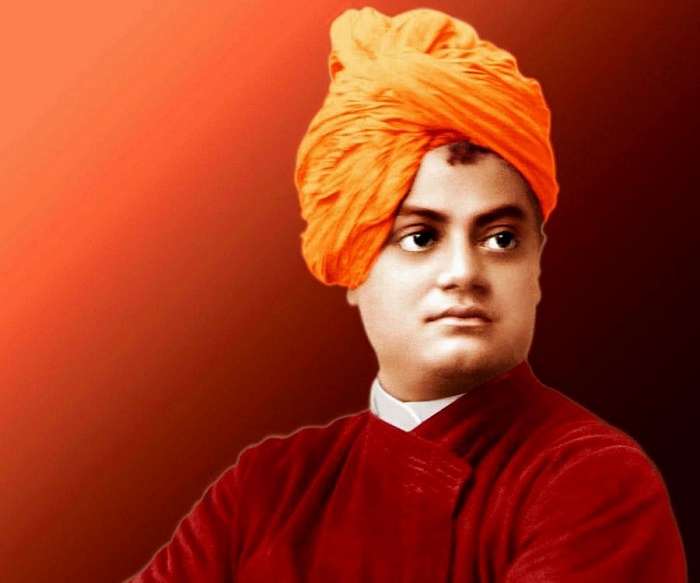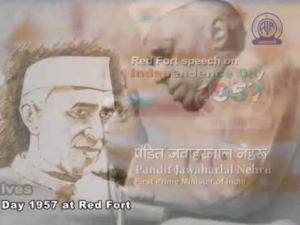Swami Vivekananda breathed his last on July 4, 1902.
This great Hindu saint was a firm believer in equality of all religions. He preached that all religions upheld the same ideals of “attainment of liberty and cessation of misery”, and preached equal respect and dignity for all religions, values that were later enshrined in the Indian Constitution.
When Vivekananda preached equal respect for all communities, he clarified that this did not mean tolerance. On the contrary, he berated tolerance as “blasphemy”. He stated:
Our watchword . . . will be acceptance, and not exclusion. . . . I accept all religions that were in the past, and worship with them all; I worship God with every one of them, in whatever form they worship Him. I shall go to the mosque of the Mohammedan; I shall enter the Christian’s church and kneel before the crucifix; I shall enter the Buddhistic temple, where I shall take refuge in Buddha and in his Law.
He criticised the imposition of religious values of one community on others. At this time when religious fanatics have launched a violent campaign to force the vegetarian eating habits of the Brahmin minority on the entire people, which has even resulted in several instances of mob lynching of Muslims across the country, it is important to recall Vivekananda’s wise words:
We leave everybody free to know, select, and follow whatever suits and helps him. Thus, for example, eating meat may help one, eating fruit another. Each is welcome to his own peculiarity, but he has no right to criticise the conduct of others . . . much less to insist that others should follow his way . . .
The terrible mistake of religion was to interfere in social matters. . . .
What business had the priests to interfere (to the misery of millions of human beings) in every social matter?
Here is a glorious example of Vivekananda’s spirit of respect for all religions: One of his disciples, Swami Akhandananda, was building an orphanage in Bengal. Vivekananda wrote to him saying:
Admit boys of all religions—Hindu, Mohammedan, Christian . . .
and further advised,
But never tamper with their religion. The only thing you will have to do is to make separate arrangements for their food etc. . . .
Vivekananda stood firmly against religious fundamentalism, and expressed his deep anguish at the communal divisions, violence and bloodshed unleashed by fundamentalist forces on society. He said:
Though there is nothing that has brought to man more blessings than religion, yet at the same time, there is nothing that has brought more horror than religion. Nothing has made more for peace and love than religion; nothing has engendered fiercer hatred than religion. Nothing has made the brotherhood of man more tangible than religion; nothing has bred more bitter enmity between man and man than religion. Nothing has built more charitable institutions, more hospitals for men, and even for animals, than religion; nothing has deluged the world with more blood than religion.
In his writings, Swami Vivekananda warned against religious fundamentalists’ attempts to divide Hindus and Muslims. He held Islam in high esteem, as is obvious from his letter to Mohammed Sarfaraz Husain written on 10 June 1898:
If ever any religion approached this equality in an appreciable manner, it is Islam and Islam alone.
And therefore, he emphatically stated that if India is to progress, if India in the future is to rise “glorious and invincible”, there must not only be cooperation between Hinduism and Islam, but their confluence. He wrote:
For our own motherland a junction of the two great systems, Hinduism and Islam —Vedanta brain and Islam body—is the only hope.
Vivekananda’s views are completely antithetical to the fundamentalists who, through the RSS and its offshoots, pursue a vicious offensive to undermine the Indian Constitution, destroy the country’s secular fabric and convert India into a Hindu Rashtra. Three decades before the RSS’s formation, when the monster of religious nationalism was hardly born, this far-sighted Swami gave the call:
All sect ideas and tribal or national ideas of religion must be given up. That each tribe or nation should have its own particular God and think that every other is wrong is a superstition that should belong to the past. All such ideas must be abandoned.
At a time a spectre of fascism looms over the country, when fundamentalist gangs are running riot spreading hatred and intolerance, attacking and even killing Muslims with impunity on the slightest excuse, it is important to remember Swami Vivekananda and spread his message of respect and dignity for all religions, his call for solidarity between religions. Unlike other saints, he did not offer prayers to the Almighty for his own salvation but sought salvation of the poor and the marginalised—be they Hindus, Muslims or Christians—who had been oppressed for ages. He dedicated his life for their upliftment: “May I be born again and again, and suffer thousands of miseries so that I may worship the only God that exists, the only God that I believe in, the sum total of all souls—the miserable and the poor of all races, of all species.” His whole life was a saga of relentless effort to create awareness and mobilise the young men and women of India to sacrifice, go out among the masses, uplift them, organise them, and build a new society that would be free from all kinds of exploitation.
Two years ago, some socialist organisations of Pune city appealed to the people of the country, those who believe in Constitutional Values of Fraternity, Secularism and Democracy, to observe July 4 as RELIGIOUS FRATERNITY DAY, and spread Swami’s Vivekananda’s message of love and respect for all religions, and his call to the Youth of the country to dedicate their lives for the upliftment of the poor, be they Hindus, Muslims or Christians.
We endorse this appeal.
(All quotations are from: “Complete Works of Swami Vivekananda”, www.ramakrishnavivekananda.info, and have been taken from the booklet: Dattaprasad Dabholkar, “Rationalist, Scientific, Socialist Vivekananda”, www.lokayat.org.in.)

‘Freedom From Fear is the Freedom I Claim for You my Motherland!’
India celebrates the 75th Republic Day on January 26. On this day, 75 years ago, in 1950, the Constitution pledged equality, regardless of gender, caste, religion, class, community or language. It is a fitting time to revisit this poem by Rabindranath Tagore on his vision of a truly liberated India.



